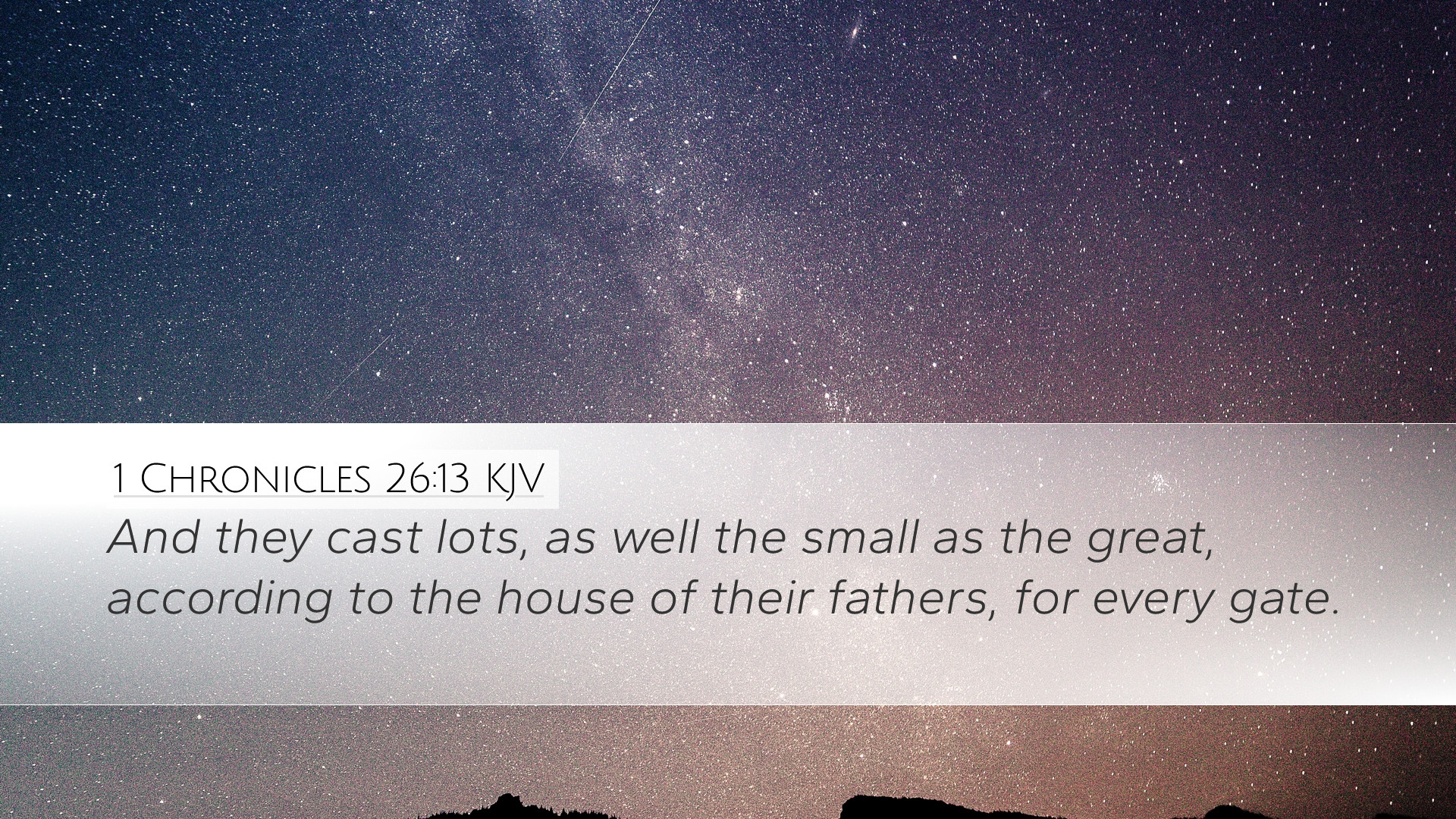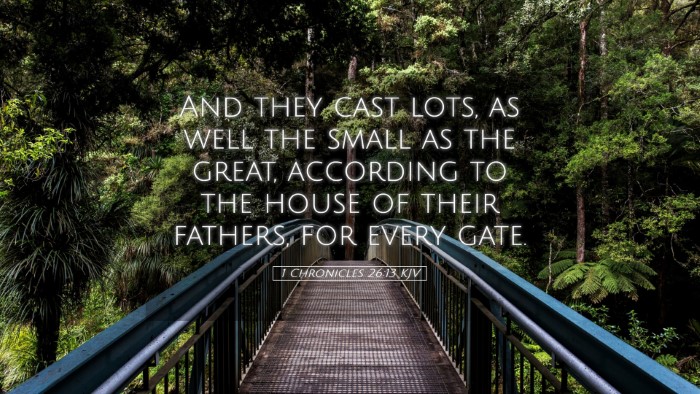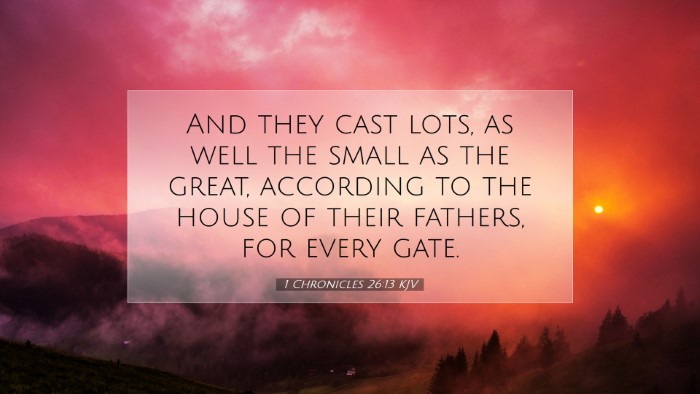Commentary on 1 Chronicles 26:13
Verse: 1 Chronicles 26:13 (KJV) - "And they cast lots, ward against ward, as well the small as the great, according to the house of their fathers, for every gate."
Overview
This verse is situated within the context of the organization of the Levites, specifically concerning the porters (gatekeepers) of the temple. The casting of lots denotes a practice to ensure fairness and divine guidance in assigning responsibilities. This commentary synthesizes insights from renowned biblical commentators such as Matthew Henry, Albert Barnes, and Adam Clarke, providing a thorough exploration of the significance of this passage.
Theological Implications
1 Chronicles 26:13 reveals theological truths about divine order and the necessity of structure within worship. The Levites were entrusted with the sacred task of overseeing the gates of the temple, signifying the importance of safeguarding holy spaces. The casting of lots emphasizes reliance on God's sovereignty, illustrating that leadership and responsibilities are ultimately determined by divine providence.
Contextual Understanding
In the broader narrative of 1 Chronicles, the genealogies and organizational structures emphasize the Levites' special role in the temple. The unity of the people of Israel and their heritage is highlighted through the careful documentation of their responsibilities.
Commentary Insights
Matthew Henry's Commentary:
- Henry notes that the division of the duties among the porters reflects the diligence necessary in temple service. Each individual, large or small, was deemed vital for fulfilling their roles.
- He observes that “ward against ward” suggests a structured approach where order was essential, with each "ward" having its designated responsibilities.
Albert Barnes' Notes:
- Barnes highlights that casting lots was a common practice in ancient Israel, believed to be guided by divine will, especially when human struggle over assignments could lead to discord.
- The equitable approach of assigning duties “as well the small as the great” indicates that every person’s contribution was vital, reinforcing the principle of equality before God.
Adam Clarke's Commentary:
- Clarke emphasizes the importance of the gates and roles assigned to the porters, interpreting them as symbolic of safeguarding the entrance to God’s presence.
- His commentary on the casting of lots reflects a theological principle where humans must sometimes rely on God for decisions that might otherwise lead to personal conflict or strife.
Practical Applications
The themes derived from 1 Chronicles 26:13 resonate deeply with contemporary church organization:
- Structured Ministry: Effective ministry requires a clear division of responsibilities. Churches today can learn from the ordered assigning of roles in ensuring that every member contributes adequately.
- Equity in Service: This verse reminds church leaders of the importance of recognizing the value of every member, regardless of their status or ability. Every role is essential in the body of Christ.
- Divine Guidance: The practice of seeking divine wisdom through prayer and casting lots can still hold meaning today as a metaphor for decision-making processes guided by the Holy Spirit.
- Guardians of Holiness: Modern ministry must incorporate a sense of duty in protecting what is sacred, paralleling the responsibility of the porters who guarded the temple gates.
Conclusion
1 Chronicles 26:13 serves as a powerful reminder of the need for divine order in worship. The thorough commentary by Matthew Henry, Albert Barnes, and Adam Clarke illuminates its significance for understanding roles within the church and the importance of seeking God's guidance. As pastors, students, theologians, and scholars reflect on this verse, may they be inspired to organize their spiritual responsibilities with a deep understanding of the significance of equality, structure, and holiness.


